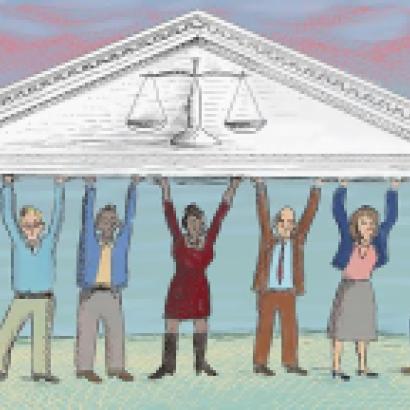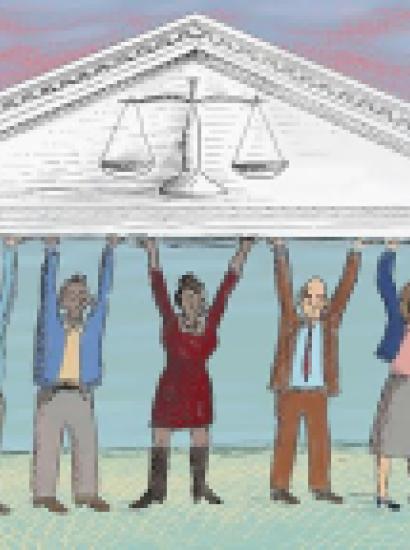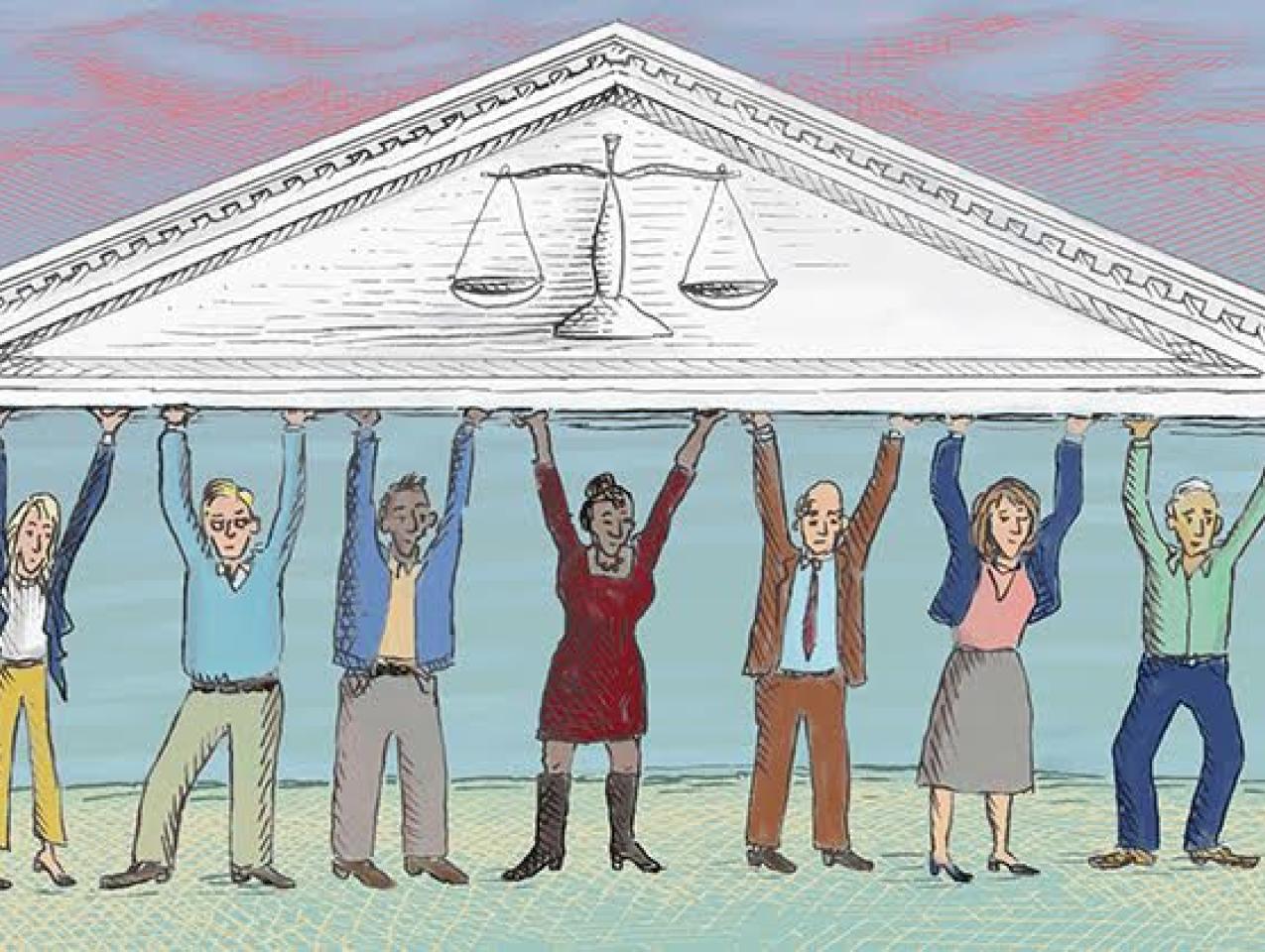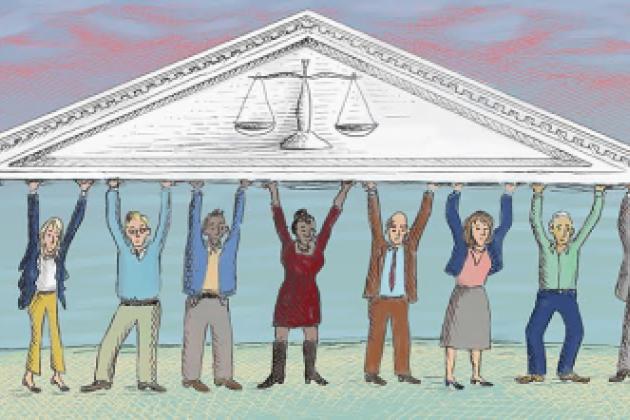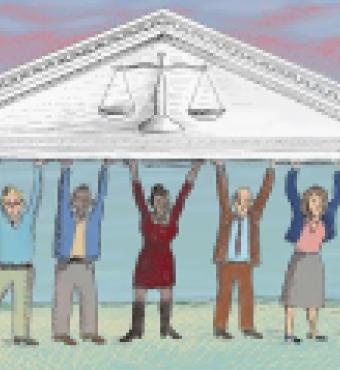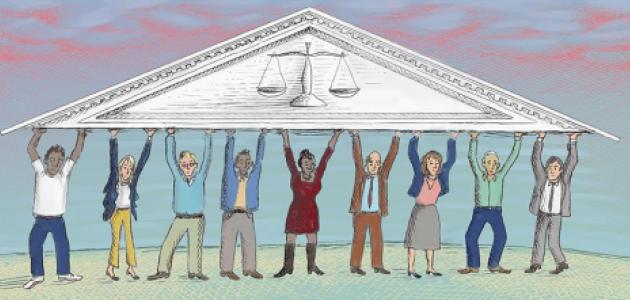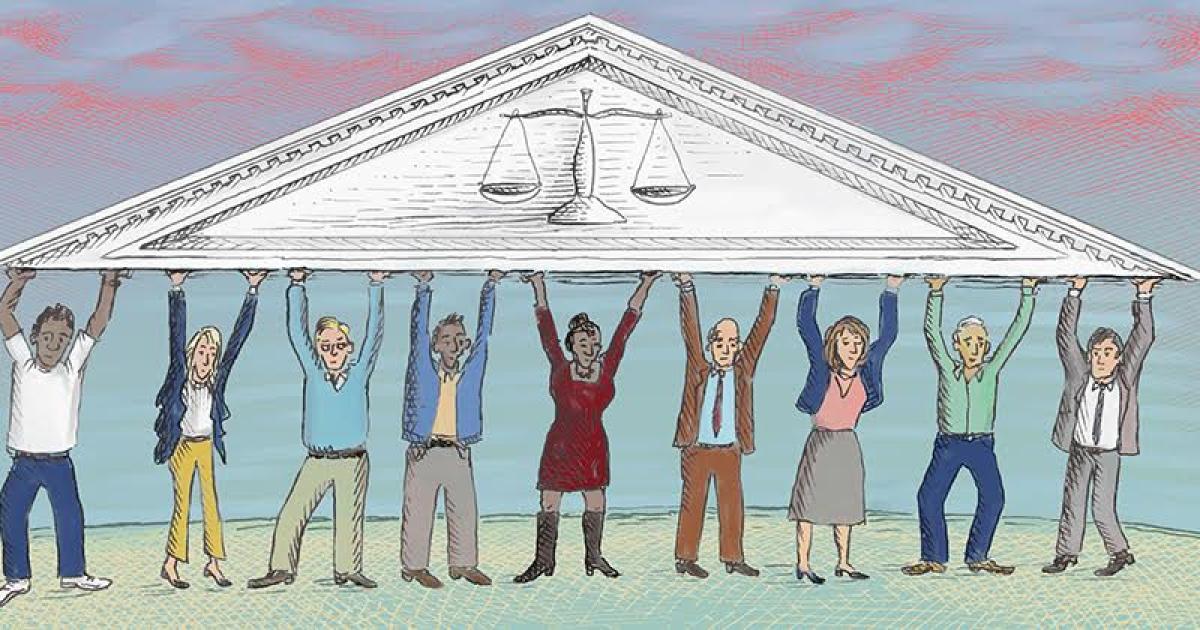- Law & Policy
This week, the Magna Carta turned 800 years old. All freedom loving people should pause to recognize how much we owe to the English barons who forced King John to accept restrictions on his arbitrary authority as a sovereign. It was the start of a series of events that eventually gave rise to popular sovereignty and, in the United States, constitutional government.
The confrontation between the king and the barons came after several years of rising tension in which the church sided with barons. In May 1215, the barons occupied London, the capital of the kingdom, and renounced their allegiance to the king. With assistance from the Archbishop of Canterbury, the barons drew up the Articles of the Barons, which after negotiation became the Charter of Liberties, subsequently renamed the Magna Carta.
The document’s historic importance does not come from the specific restrictions that King John was forced to accept. Many of the original 63 clauses relate to problems of the time. The document does not make glowing statements about freedom and liberty. It allocates property rights—such as the right to fish in the Thames River and the ownership of land. In our day, that discussion could just as well be about rights to oil buried in the ground or the protection of individual ownership of one’s home.
The emphasis on protecting property broadened into a concern for the rule of law, a foundation of the legal systems in many countries. The Magna Carta went through many revisions that later extended rights from a select group of barons to a popularly elected parliament. Although general agreement on the precise definition of the “rule of law” is lacking, most agree that it includes the principles that people should be secure in their person and property and that the state’s authority over others remains grounded in legitimate institutions so that no government can impose its will on another unchecked. Rule of law is often summarized as equal treatment under the law.
By far the most important contribution of the Magna Carta to the rule of law was that King John accepted that his authority was limited, not absolute, and that the limitation was open to negotiation. From this beginning, the rule of law gradually replaced unrestricted sovereign authority.
The rule of law is found in all countries whose populations enjoy a high standard of living. No country that did not endorse the rule of law has ever developed a high standard of living. Freedom under the law and successful economic development occur together. In our current period, a country like China cannot expect to achieve full development without adopting the rule of law. By adopting the rule of law, countries reduce uncertainty, which is the foundation of homegrown innovation. The rule of law, and the freedoms that it brings, explain why the United States innovates in the arts, technology, and other areas.
In the years since World War II, we have greatly increased personal freedom under the law. The Civil Right Acts that increased equality of opportunity for blacks, women, and homosexuals are some of the ways in which personal freedoms have increased. And the Supreme Court has upheld these changes, thereby extending the rule of law as a safeguard of personal freedom. The opportunity to extend the principles that started with the Magna Carta never ends.
Neither does the challenge to freedom. Extensive new regulations restrict behavior in ways that benefit some at the expense of others. This violates the principle of equal treatment fundamental to the rule of law. At the Hoover Institution, we have just completed the first year of a multi-year project called Regulation and the Rule of Law. The anniversary of the Magna Carta is an excellent opportunity to examine whether we need to strengthen our commitment to the rule of law. The conferences we held discussed issues involving violations of the rule of law. One considered strictly constitutional questions.
Some examples are: The Constitution grants exclusive legislative responsibility to Congress to make laws, but presidents can and do refuse to enforce some laws and President Obama specifically has changed some of the laws passed by Congress. How far does his authority extend? To sustain the rule of law, the Constitution imposes separation of powers into three branches of government. Most of the rules nowadays are written by administrative agencies that combine executive, legislative, and judicial authority in a single institution. If, as is commonly said, the complexity of modern life requires this, can Congress be authorized to yield its legislative role to various executive branch agencies? Or should Congress be strengthened enough to restore its legislative role despite the failure of previous efforts to do so?
In several of the papers at the Hoover conference, authors proposed reforms. Scholar and former AEI president Christopher DeMuth considered several legislative and judicial changes to restore constitutional balance and strengthen the rule of law. One proposal would add a cost-benefit requirement to the Administrative Procedures Act that governs administrative agencies. Costly changes in rules would require either Congressional approval or rejection or approval by OIRA, the Office of Information and Regulatory Affairs a part of the Office of Management and Budget.
NYU professor of law Jennifer Arlen studies the Department of Justice’s practice of negotiating “pretrial diversion agreements” with corporations. These agreements permit the corporation to pay a fine and avoid formal conviction. But they also empower prosecutors to impose new retrospective legal duties to govern the firm’s future behavior even if no crime occurs. Prosecutors are not constrained by the Justice Department’s guidelines or effective judicial review over the mandates they impose.
Zachary Price of UCLA law school has considered the extent of the president’s constitutional authority to refuse to enforce legislation and his use of executive authority to waive explicit requirements. He found that the president can choose to fail to enforce particular laws but that he violates the rule of law when he changes legislation. Price has also looked at rule of law arising from the practice of requiring potential defendants to agree to conditions governing future conduct in exchange for avoiding sanctions. A major obstacle to equal protection of the law is that many regulations impose large costs on the regulated. Small and medium-sized firms often cannot afford to pay the costs. They close or sell to larger firms.
These and other violations of the rule of law should be eliminated. A great way to celebrate the 800th anniversary of Magna Carta would be to reaffirm and strengthen our commitment as a nation to the rule of law.








